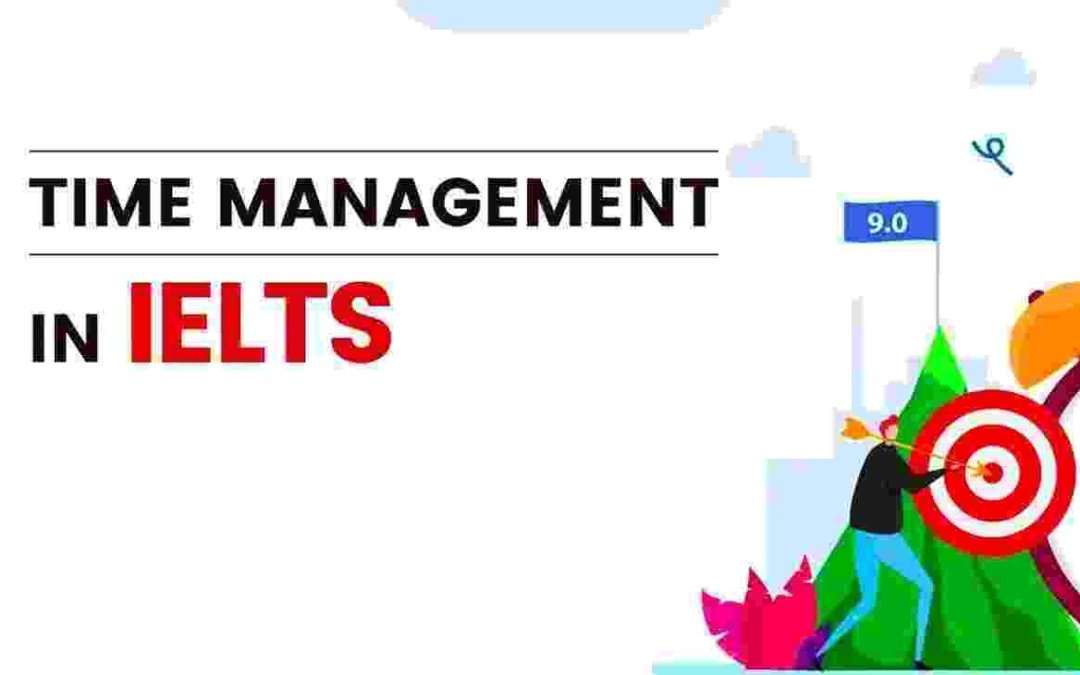Time management plays a pivotal role in achieving success in the International English Language Testing System (IELTS) examination. With a duration of 2 hours and 45 minutes, comprising modules like reading, listening, writing, and speaking, it is essential to understand the time allocation for each section and employ effective strategies to optimize your performance. In this blog, we will explore valuable insights and tips to help you manage your time efficiently in each module of the IELTS exam.

- Listening Module: The listening module consists of a 30-minute audio session with 40 questions spread across four sections. While it may seem challenging to manage time during continuous audio playback, there are techniques to utilize the time provided wisely. Take advantage of the few seconds of silence between audio segments to preview upcoming questions and familiarize yourself with the answer format. By doing so, you can listen attentively and respond accurately, ensuring better time utilization.
- Reading Module: The reading module grants you 60 minutes to answer 40 questions distributed among three passages. Effectively managing time becomes crucial in this module. Divide your time strategically, allocating approximately 20 minutes to each passage. However, adapt your approach based on the difficulty level of the passages. If the first passage appears relatively easier, complete it within 15 minutes, allowing you to allocate extra time to the subsequent passages. Adjusting your time allocation according to the complexity of each passage can help you maintain a steady pace and successfully tackle all the questions within the allocated time frame.
- Writing Module: The writing module encompasses task 1 and task 2, requiring 60 minutes in total. For task 1, allocate three minutes for planning, 15 minutes for writing, and two minutes for proofreading. When it comes to task 2, dedicate five minutes for planning, 13 minutes for writing, and an additional five minutes for proofreading. Efficient time management is crucial in this module to ensure a well-structured and error-free response. Identify your areas of weakness and practice writing under time constraints to improve your speed without compromising on quality.
- Speaking Module: The speaking module is the shortest among the four, but it necessitates effective time management. The examiner poses questions, and candidates must respond appropriately. In part two, you will be required to speak for two minutes on a given topic. To excel in this module, train yourself to speak confidently for the required duration. B-Max Academy provides comprehensive training and practice opportunities to enhance your speaking skills, allowing you to deliver fluent and well-articulated responses within the allocated time.
Conclusion: Mastering time management is crucial for success in the IELTS examination. By familiarizing yourself with the format and time allocation of each module, you can devise effective strategies to optimize your performance. Remember, practice, and preparation are key elements in honing your time management skills. With proper guidance and training from B-Max Academy, you can build confidence and achieve outstanding results in the IELTS exam. So, embark on your IELTS journey with B-Max Academy and experience the difference in your performance.



Useful article, thank you. Top article, very helpful.
Best best best..